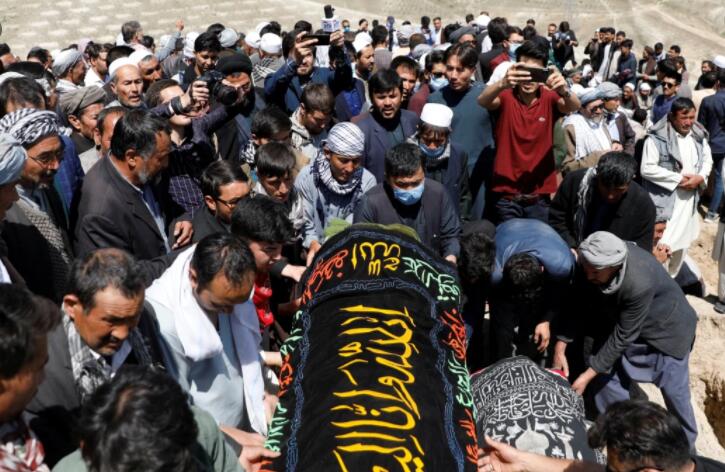Ceasefire in Afghanistan after Deadly Attack at Girls' School
The Taliban on Monday announced a three-day cease-fire for the Muslim holiday of Eid al-Fitr.
The holiday marks the end of the holy month of Ramadan this week. Hours later, however, a roadside bombing killed 11 people on a bus in eastern Afghanistan as the country experiences continued acts of violence.
No one has claimed responsibility for the bombing.
After the Taliban cease-fire announcement, the government in Kabul called for a permanent truce. A statement from the presidential palace criticized the Taliban for the increasing violence but said the government would also observe the holiday cease-fire.
The Taliban said the cease-fire would begin on either Wednesday or Thursday. It will be decided on the sighting of the new moon that marks the start of the holiday.

The announcement follows an attack on a girls' school on Saturday in Kabul that killed as many 60 people. The number of dead continues to increase. Many of the dead are students between 11 and 15 years old. No group has claimed responsibility for the attack, and the Taliban have said they did not do it.
The attack happened in a mostly Shiite neighborhood in western Kabul. Past attacks there have been carried out by a group linked to the Islamic State.
The Afghan President said Tuesday will be a national day of mourning for the victims.
Hours after the Taliban announcement, a bus in southern Zabul province struck a roadside bomb, said Interior Ministry spokesman Tariq Arian. The explosion killed 11 and at least 24 more people on the bus were wounded.
Taliban spokesman Suhail Shaheen said Taliban fighters have been ordered to stop all operations, "to provide a peaceful and secure atmosphere to our compatriots" so they can celebrate the religious holiday.
The U.S. and NATO are withdrawing the last of their military forces from Afghanistan. The final 2,500-3,500 American soldiers and about 7,000 allied NATO forces will leave by September 11.
Since the withdrawal began, the Taliban have increased their battlefield attacks on the Afghan army, capturing new territory.
Also on Monday, Pakistan's army chief, General Qamar Javed Bajwa, was in Kabul. There were no other details about his visit.
Pakistani leaders were important to the process of getting the Taliban to agree to peace talks. However, the Taliban-Afghan government negotiations have been frozen for months now although the U.S. has tried to push both sides to an agreement.
I'm Jonathan Evans.












